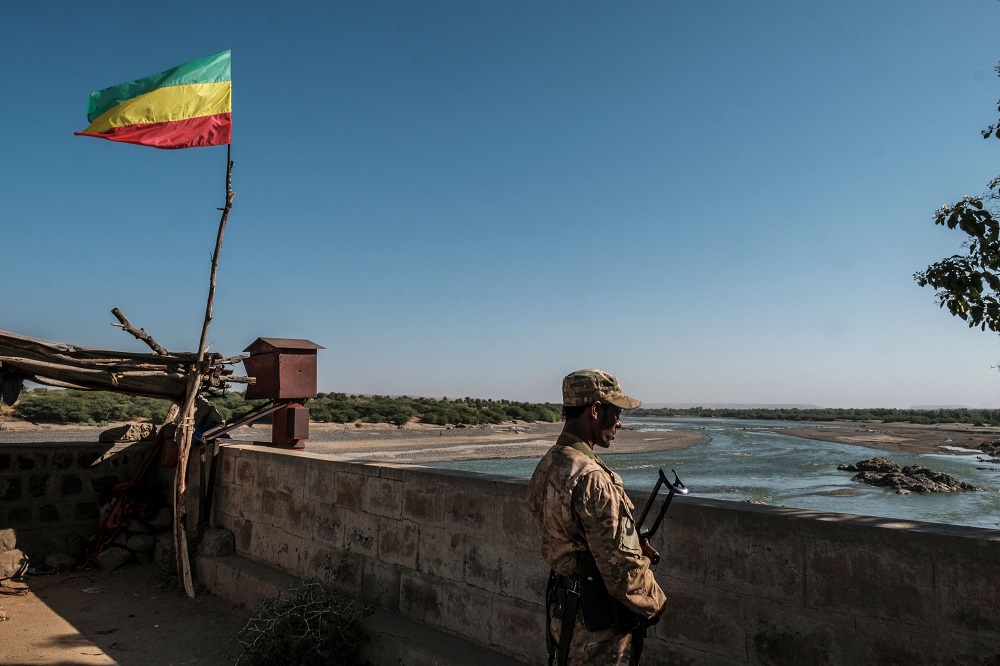
The United Nations announced Monday it will provide $40 million in emergency funding for conflict-wracked northern Ethiopia and drought-affected southern areas, and welcomed the release of 34 truck drivers waiting to deliver aid to war-torn Tigray.
But U.N. deputy spokesman Farhan Haq said 36 drivers contracted by relief organizations are still being held along with 10 U.N. staff members.
Hundreds of trucks trying to get desperately needed humanitarian aid into the northern Tigray region have been blocked from entering and Haq said there is still no sign of movement. “In recent days,” Haq said, “we’ve heard some greater signs of agreement that we can be able to move aid along but we want to see that carried out in practice.”
Earlier, U.N. humanitarian chief Martin Griffiths allocated $25 million from the U.N.’s Central Emergency Response Fund and the country-based Ethiopia Humanitarian Fund allocated $15 million.
U.N. humanitarian chief Martin Griffiths allocated $25 million from the U.N.’s Central Emergency Response Fund and the country-based Ethiopia Humanitarian Fund allocated $15 million.
The U.N. said the $40 million will help scale up emergency operations to provide humanitarian assistance and protect civilians in the north and support an early response to the drought in the south.
“Millions of people in northern Ethiopia are living on a knife-edge as the humanitarian crisis is growing deeper and wider,” said Griffiths, who returned last week from Ethiopia. “Across the country, needs are rising. This injection of cash will help aid organizations meet some of the most vulnerable people’s need for protection and relief.”
Months of political tensions in the north between Ethiopian Prime Minister Abiy Ahmed’s government and the Tigray leaders who once dominated Ethiopia’s government exploded into a war in November 2020 that has killed thousands, displaced millions and led to thousands of detentions. Following some of the fiercest fighting of the conflict, Ethiopian soldiers fled the Tigray capital, Mekele, in June.
Tigray forces launched a recent offensive and are approaching the capital Addis Ababa to press Ahmed to step aside and lift a deadly months-long blockade which has cut off food, medicine and other aid from the region of around 6 million people and left hundreds of thousands of people facing famine. The prime minister declared a national state of emergency on Nov. 2 with sweeping detention powers.
In northern Tigray, Amhara and Afar regions, the United Nations said the newly announced funds will support relief agencies providing protection and other life-saving assistance to people affected by the conflict.
In the drought-affected southern Somali and Oromia regions, the U.N. said additional funding will enable relief agencies to provide drinking water, including to prevent waterborne diseases and mitigate the risk of cholera outbreaks, and will also help pastoral communities to preserve their livestock.
The U.N. said its humanitarian operations throughout the country face a funding gap of $1.3 billion, including $350 million for the response in Tigray.
– Edith M. Lederer, AP


